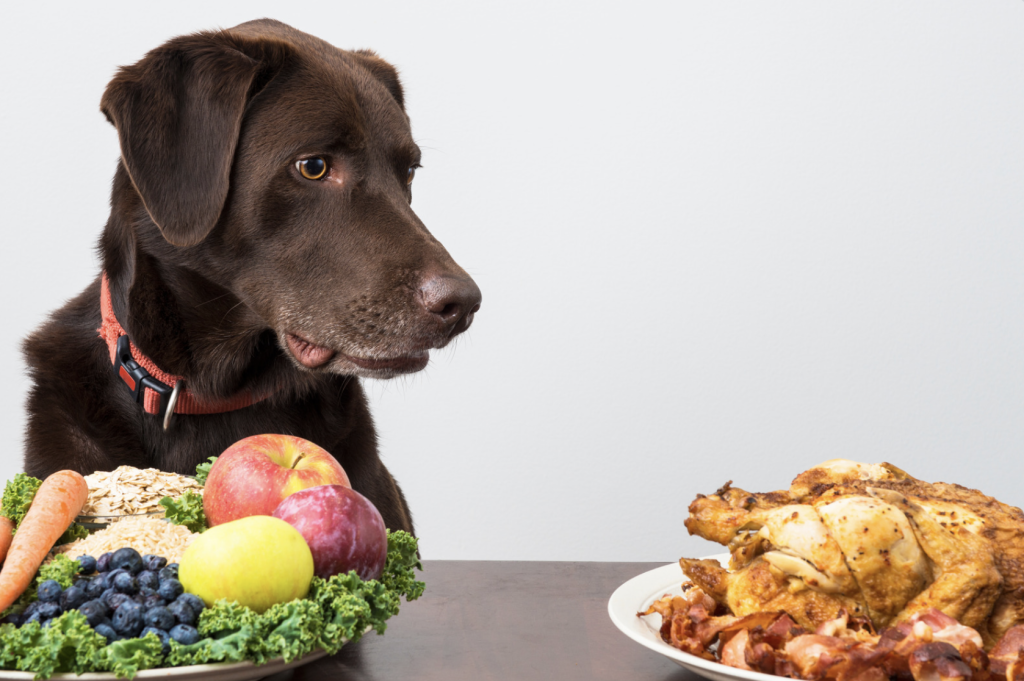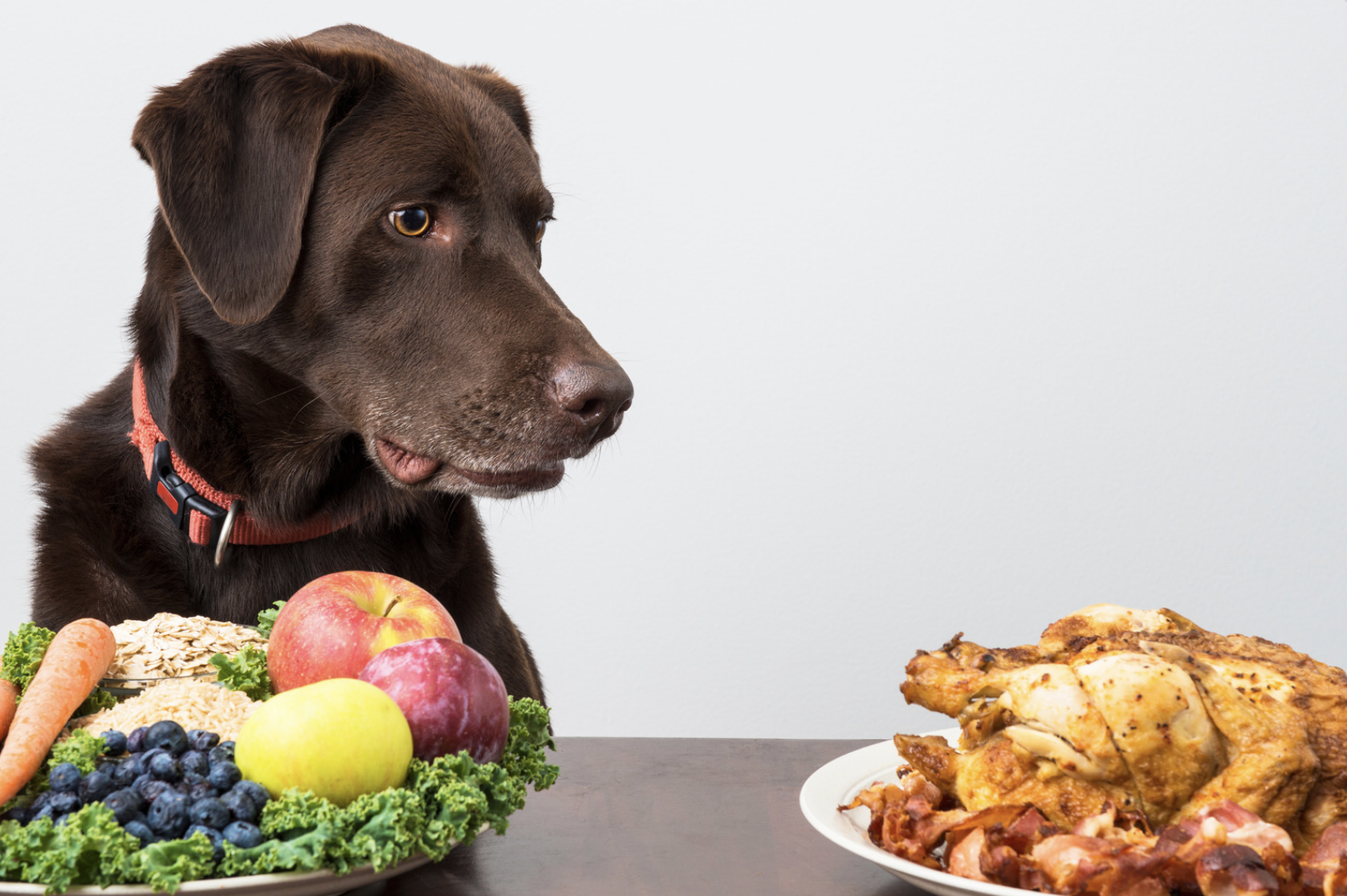As more people embrace a plant-based lifestyle, the concept of a vegan diet is extending beyond human choices to include our beloved canine companions. While the idea of a vegan dog diet may raise eyebrows, it’s essential to explore both the benefits and potential drawbacks to make an informed decision about what’s best for your furry friend.
The question of whether a vegan diet is good for dogs is a topic of ongoing debate among veterinarians, pet owners, and animal nutrition experts. While dogs are omnivores, meaning they can derive nutrients from both plant and animal sources, there are certain considerations that must be taken into account when opting for a vegan diet for your canine companion.

The Benefits of a Vegan Dog Diet:
Environmental Impact: One of the primary motivations for adopting a vegan lifestyle is the desire to reduce one’s carbon footprint. The same environmental concerns apply to our pets. Producing plant-based dog food often has a lower ecological impact compared to traditional meat-based alternatives.
Health Benefits: Contrary to common belief, dogs are not obligate carnivores; they are omnivores, capable of deriving nutrients from both plant and animal sources. A well-balanced vegan dog diet can provide all the essential nutrients, including protein, vitamins, and minerals, necessary for their overall health.
Food Allergies: Some dogs may have allergies or sensitivities to specific animal proteins. In such cases, a vegan diet can be a viable alternative to alleviate allergic reactions and improve the dog’s overall well-being.
How to Determine if Your Dog is Vegan:
Consultation with a Veterinarian: Before making any dietary changes for your dog, it’s crucial to consult with a veterinarian. A professional can assess your dog’s health, nutritional needs, and provide guidance on transitioning to a vegan diet if appropriate.
Regular Health Check-ups: Pay attention to your dog’s physical condition, coat quality, and energy levels. Regular veterinary check-ups can help monitor your dog’s health and catch any potential issues early on.
Considerations and Potential Drawbacks:
Nutritional Balance: The biggest concern with a vegan dog diet is ensuring it meets all the nutritional requirements. Dogs need essential nutrients like protein, omega-3 fatty acids, and certain vitamins that are more readily available in animal-based sources. Specialized vegan dog foods are formulated to address these needs.
Transition Period: Abruptly switching a dog to a vegan diet can lead to digestive issues. A gradual transition with the guidance of a veterinarian helps the dog’s digestive system adapt to the new food.
Individual Variability: Just like humans, dogs have individual nutritional needs. Some dogs may thrive on a vegan diet, while others may not. Monitoring your dog’s health and adjusting the diet accordingly is essential.

From the information we have looked at here is our list of pros and cons of a Vegan Dog Diet:
Environmental Impact: A vegan diet for dogs typically has a lower environmental impact, as plant-based ingredients often have a smaller carbon footprint compared to meat production.
Allergies and Sensitivities: Some dogs may have allergies or sensitivities to certain animal proteins. A vegan diet can provide an alternative that may alleviate allergic reactions and improve the dog’s health.
Well-Formulated Vegan Dog Foods: There are commercially available vegan dog foods that are specifically formulated to meet the nutritional needs of dogs. These foods are fortified with essential nutrients such as protein, amino acids, vitamins, and minerals.
Cons and Considerations:
Nutritional Balance: Dogs have specific nutritional requirements that may be challenging to meet with a solely plant-based diet. Nutrients like taurine, vitamin B12, and omega-3 fatty acids are commonly found in animal products and may be lacking in a poorly balanced vegan diet.
Digestibility and Absorption: Dogs are adapted to digest and absorb nutrients from both plant and animal sources. While they can technically survive on a vegan diet, ensuring proper digestion and absorption of nutrients can be more challenging.
Individual Variability: Dogs, like humans, have individual nutritional needs. Some dogs may thrive on a vegan diet, while others may not. It’s essential to monitor your dog’s health closely and make adjustments as needed.

Consultation with a Veterinarian: Before transitioning your dog to a vegan diet, it’s crucial to consult with a veterinarian. A professional can assess your dog’s health, advise on appropriate nutritional supplements, and help you make an informed decision.
While a vegan diet for dogs is a topic that continues to spark debate, it’s essential to prioritize your pet’s health and well-being. Consulting with a veterinarian and choosing high-quality, nutritionally balanced vegan dog food can help address concerns and ensure your furry friend receives the nutrients needed for a happy and healthy life. As with any dietary change, thoughtful consideration and professional guidance are key to making the right choice for your dog’s unique needs.




